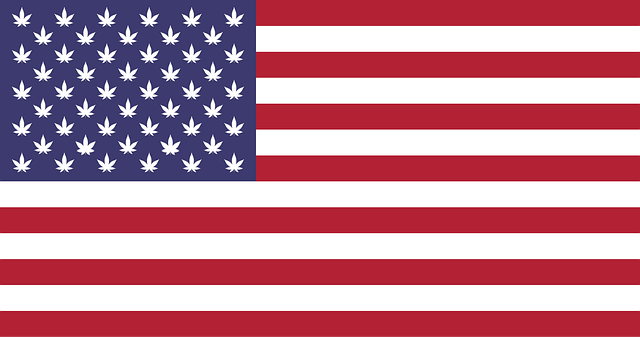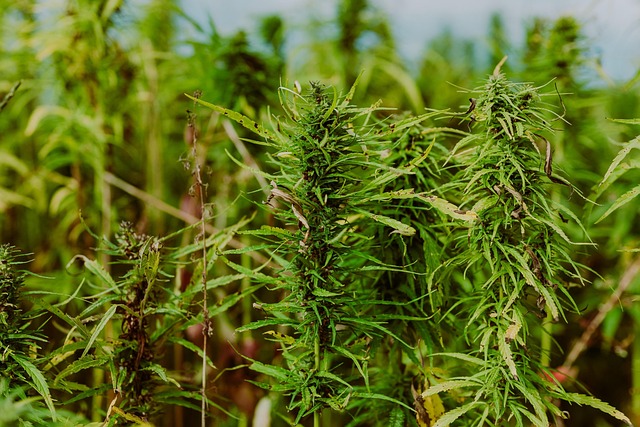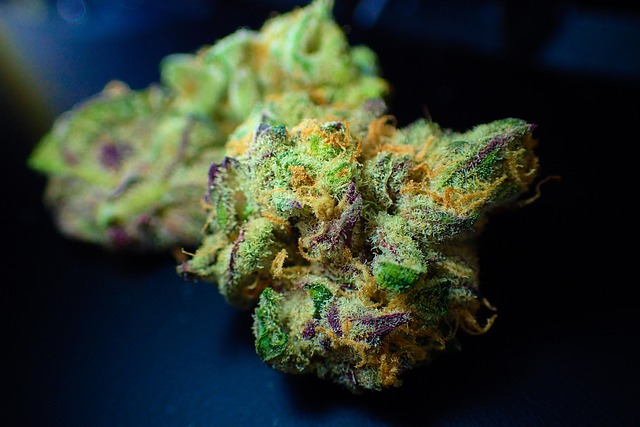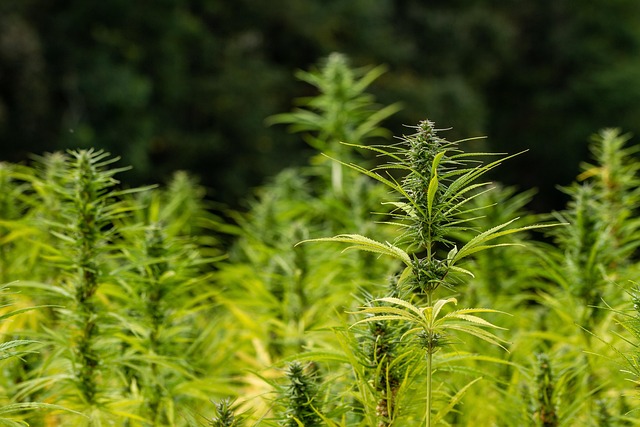Discover the Dosage Edge: Hemp Isolate Saves You Money & Time!

Tired of splurging on traditional CBD oil without seeing significant results? Switch to hemp isolate…….
The world of cannabis derivatives has evolved exponentially in recent years, with two prominent players capturing significant attention: hemp isolate and traditional CBD (Cannabidiol) oil. This article delves into the intricate differences, applications, and implications of these substances, offering a comprehensive guide for consumers, industry experts, and those curious about the ever-growing cannabis market. By exploring various facets, we aim to shed light on why understanding this distinction is crucial in navigating the potential benefits and challenges associated with hemp-derived products.
Hemp Isolate: A highly refined product derived from industrial hemp plants, containing a concentration of at least 98% CBD. It is isolated from other cannabinoids found in the plant, hence the term ‘isolate’. This isolation process ensures that the final product has minimal THC (Tetrahydrocannabinol), often below trace levels, making it non-psychoactive.
Traditional CBD Oil: Also known as hemp oil or full-spectrum CBD oil, this is an extract from the entire cannabis plant, including both the seeds and the flowers. While it primarily contains CBD, it also retains other cannabinoids, terpenes, and flavonoids naturally present in the plant. This full-spectrum approach aims to capture the plant’s complete chemical profile.
The story of hemp dates back thousands of years, with ancient civilizations utilizing its versatile properties for textiles, medicine, and food. However, the modern CBD movement gained momentum in the early 21st century when research into cannabis compounds began to uncover their potential therapeutic benefits. The legalization of industrial hemp under the 2018 Farm Bill in the United States further fueled the growth of hemp isolate products by separating CBD from its psychoactive counterpart, THC.
The global CBD market, driven by the popularity of both hemp isolate and traditional CBD oil, has witnessed remarkable expansion. According to a report by Grand View Research, the global CBD market size was valued at USD 2.4 billion in 2020 and is expected to expand at a compound annual growth rate (CAGR) of 37.8% from 2021 to 2028. This rapid growth can be attributed to increasing consumer awareness, changing attitudes towards cannabis, and the growing body of scientific research supporting its therapeutic claims.
North America: The United States remains a pivotal market for CBD products, with a thriving industry centered around hemp-derived CBD. Canada, another major player, has also seen significant growth due to its progressive legislation and robust healthcare system.
Europe: Countries like Germany and the United Kingdom have embraced CBD, leading to a surge in product availability and consumer adoption. The European Union’s regulatory framework provides a standardized approach, ensuring product safety and quality.
Asia-Pacific: Japan and South Korea are emerging as hubs for CBD innovation, with a growing demand for high-quality, natural wellness products. China, the largest cannabis market globally, has shown a particular interest in hemp-derived cannabinoids for their potential medicinal benefits.
The economic landscape of hemp isolate and traditional CBD oil is dynamic and multifaceted:
| Sector | Description |
|---|---|
| Agricultural | Hemp cultivation provides income for farmers, contributing to rural economies. The demand for high-quality hemp seeds and plants drives innovation in breeding and cultivation practices. |
| Manufacturing | The production of CBD extracts, isolate, and finished products creates jobs and stimulates economic growth. This includes refining, distillation, packaging, and quality control processes. |
| Retail | Online and brick-and-mortar stores selling CBD products have emerged, providing employment opportunities and contributing to local economies. |
| Healthcare & Wellness | The medical and wellness industries benefit from the potential therapeutic effects of CBD, leading to increased investment in research and product development. |
The CBD market has attracted significant investment, with venture capital firms, private equity, and even large pharmaceutical companies entering the space. This influx of capital has fueled research, product innovation, and marketing campaigns, contributing to the industry’s rapid growth.
Advanced Extraction Techniques: Modern extraction methods, such as CO2 extraction and solventless processes, allow for precise control over cannabinoid profiles, ensuring high-purity hemp isolate and full-spectrum CBD oil.
Third-Party Testing: The adoption of rigorous third-party testing has become industry standard, providing transparency regarding product potency, purity, and safety. This ensures consumers receive consistent, high-quality products.
Nanotechnology: Researchers are exploring ways to enhance the bioavailability of CBD through nanotechnology, enabling more effective delivery systems and potentially higher therapeutic efficacy.
Digital Education Platforms: Online platforms and apps provide consumer education on CBD, helping individuals make informed choices based on their specific needs and preferences.
The regulatory environment for hemp isolate and traditional CBD oil varies widely across countries and regions:
Legalization and Decriminalization: Many countries have legalized cannabis for medical and/or recreational use, leading to a surge in legal CBD products. For instance, Uruguay was the first country to fully legalize cannabis in 2013, while Canada legalized recreational marijuana in 2018.
Hemp Legalization: The distinction between hemp and marijuana is crucial. Hemp plants with less than 0.3% THC are generally legal in many places, fostering the growth of industrial hemp and related CBD products.
Food and Drug Administration (FDA) Regulations: In the US, the FDA has been proactive in regulating CBD food and dietary supplements, ensuring product safety and labeling consistency. However, this regulatory landscape is still evolving.
Regulatory clarity plays a pivotal role in shaping the industry’s trajectory:
One of the primary challenges facing the CBD industry is ensuring product safety. While generally considered safe, CBD supplements have been associated with adverse effects in some users, such as diarrhea, dry mouth, and drug interactions. Therefore:
The risk of overregulation exists in regions with strict CBD laws. This could limit access to potentially beneficial products and stifle innovation. Striking a balance between consumer protection and fostering a vibrant industry is crucial for long-term success.
Clear labeling is essential for consumers to make informed choices. Some critics argue that the lack of standardized labeling contributes to consumer confusion, making it challenging to compare different products. Implementing consistent labeling standards would enhance transparency and build trust in the market.
A study published in JAMA (Journal of the American Medical Association) in 2019 investigated the use of CBD oil for chronic pain management. The double-blind, randomized controlled trial found that participants using a CBD-containing capsule experienced significant reductions in pain intensity compared to those taking a placebo. This case highlights the potential of traditional CBD oil in managing chronic conditions.
In 2015, the FDA approved a hemp-derived CBD medication called Epidiolex for treating certain types of epilepsy resistant to conventional treatments. This landmark decision underscored the therapeutic potential of hemp isolate, leading to increased research and clinical trials exploring its efficacy in various neurological disorders.
A small study published in Frontiers in Psychiatry (2017) explored the effects of a whole-plant CBD extract on social anxiety disorder. Participants reported significant reductions in anxiety and improved overall quality of life after using the CBD product for four weeks. This case study demonstrates the potential for both hemp isolate and traditional CBD oil in managing mental health conditions.
The future of CBD lies in personalized medicine, where products are tailored to individual genetic profiles and specific health needs. Advanced testing and genomics can help identify cannabis variants most effective for particular conditions.
Topical CBD products, including creams, balms, and patches, are gaining popularity. These applications offer targeted relief without the potential psychoactive effects of oral consumption, making them suitable for a broader range of consumers.
The pet industry is embracing CBD as a natural alternative for managing pain, anxiety, and other health issues in animals. Research suggests that CBD may provide similar benefits to dogs and cats as it does to humans, opening up a new frontier for product development.
As regulations become more favorable worldwide, the CBD market is poised for significant global expansion. Standardization of testing and labeling practices will be crucial to ensuring consumer safety and fostering international trade.
The hemp isolate vs traditional CBD oil debate highlights the intricate relationship between these two cannabis derivatives. Each offers unique advantages, from the high-purity of hemp isolate to the full-spectrum approach of traditional CBD oil. Understanding these distinctions is vital for consumers seeking personalized wellness solutions and for industry professionals navigating a rapidly evolving landscape.
As research continues to uncover the therapeutic potential of cannabinoids, the global community must work together to establish robust regulatory frameworks. This will ensure that consumers have access to safe, effective, and high-quality CBD products while promoting responsible innovation within the industry. The future of hemp isolate and traditional CBD oil promises exciting possibilities for those seeking natural solutions to modern health challenges.
Q: Is hemp isolate better than traditional CBD oil?
A: There is no definitive answer; it depends on individual preferences and desired effects. Hemp isolate offers higher concentration levels, making it ideal for specific applications like research or severe conditions. Traditional CBD oil provides a broader spectrum of cannabinoids, which some users prefer for potential synergistic effects.
Q: Is CBD legal worldwide?
A: No, CBD’s legal status varies widely globally. Many countries have legalized CBD for medical and/or recreational use, while others maintain strict controls or prohibit it entirely. It’s essential to check local laws before purchasing or using CBD products.
Q: Can CBD help with insomnia?
A: Several studies suggest that CBD may help improve sleep quality and reduce insomnia symptoms. However, more research is needed to fully understand its effects on sleep disorders. It’s always best to consult a healthcare professional for personalized advice.
Q: How does hemp isolate differ from marijuana?
A: Hemp and marijuana are both cannabis plants but belong to distinct species. Hemp (Cannabis sativa L.) typically contains less than 0.3% THC, the psychoactive compound in marijuana (also Cannabis sativa but different strains). This low THC content makes hemp isolate non-intoxicating.
Q: Are there any side effects of CBD?
A: While generally considered safe, CBD may cause mild side effects like dry mouth, drowsiness, or gastrointestinal issues in some individuals. These are usually temporary and can be managed. It’s advisable to start with lower doses and consult a healthcare provider if concerns arise.

Tired of splurging on traditional CBD oil without seeing significant results? Switch to hemp isolate…….

Tired of spending a fortune on traditional CBD oil without seeing significant results? Hemp Isolate…….

Tired of the high prices and temporary effects of traditional CBD oil? Hemp isolate is the game-chan…….

Tired of the inconsistent and jittery side effects of traditional CBD oils? Upgrade to Organic Hemp…….

Tired of spending a fortune on CBD oils? Switch to hemp isolate, a game-changing alternative that of…….

Tired of spending a fortune on energy drinks or synthetic stimulants? Hemp isolate is here to transf…….